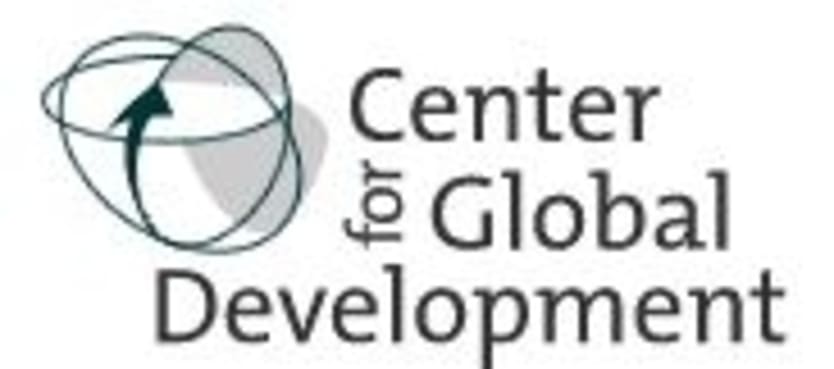
EDITOR: How can we get men involved in advancing gender equality? By having a daughter, Center for Global Development’s Lawrence MacDonald says in his article in the Global Development: Views from the Center blog.
This week I was privileged to chair a panel discussion at the World Bank on the Convention on the Elimination of All Forms of Discrimination Against Women (CEDAW). In celebration of International Women’s Day today, I want to share what I learned and a suggestion for what just might be a new and promising intervention for furthering full equality for women and girls.
I learned a lot from the very impressive panel of female advocates for gender equality. (Video). They offered numerous examples of how CEDAW has been used as a tool to advance the cause of women’s rights. And I learned, to my embarrassment, that the United States is one of only six countries that has yet to ratify this treaty. Among the others: Iran, Sudan, and Somalia. Is this really the sort of company that Americans want to keep?
It’s not that the United States never ratifies such UN documents. Under presidents Reagan, Bush (1), and Clinton, the United States ratified similar treaties against genocide, torture, and racial discrimination. President Obama supports ratification of CEDAW and Melanne Verveer, the U.S. ambassador at large for global women’s issues, who also spoke at the World Bank conference this week, has testified before the Senate, urging ratification. The panelists explained how the U.S. failure to ratify undermines their efforts—and the reputation of the United States—in the developing world. If you would like to lend your voice to pressing for U.S. ratification, CEDAW 2012 is a good place to learn more and join the campaign.
During the audience Q&A, a viewer watching the live Webcast in Nepal Tweeted this question: “How can we get men involved in this issue?” It’s an important question: around the world, lack of support from men is a key impediment to full rights for girls and women. The answers from the panel and the audience were familiar: mothers must teach their little boys the importance of gender equality; the way to equality is through economic empowerment, thus changing relations within the household. As in other gender events I have attended or moderated, the audience was overwhelmingly female. Where were the men?
The audience composition and the discussion got me thinking about my own experience in becoming the father of a baby girl. I have always believed in gender equality, of course, but at the moment my daughter was born I felt deeply and powerfully the importance of ensuring that she would never face any form of gender discrimination. At that moment I became a feminist.
I started wondering whether the emotional experience of becoming the new father of a baby girl could somehow be tapped to transform attitudes.
For example, what if each first-time father of a baby girl were approached by a person who would speak to him and give him a pamphlet with information about the legal rights of women and girls; the advantages to parents of having educated, high-achieving daughters; the special needs of adolescent girls, etc. Would his attitudes be more open to change at that moment than any other time? Could his change in attitudes result in a change in behavior? Could this be measured?
A recent cover story in the New York Times Magazine describes the huge effort that Target puts into discovering which shoppers will soon have a baby, since the birth of a child disrupts established routines, creating the possibility of new shopping patterns. Could this openness to change at this critical life juncture be used to accelerate male support for full rights for women and girls?
One can easily imagine a series of Randomized Controlled Trials (RCTs) around this intervention. What messages work best? What messengers? Can it be a female doctor or midwife? Does it work better if the messenger is a man? Would the attitudes be different three years later between members of a treatment and control group? If this worked, could it change attitudes and practices at the national level faster and more effectively than the other proposed interventions? What would this mean for hundreds of millions of girls?
I didn’t say all of this at the panel, but I did briefly suggest the birth of a baby daughter as a teachable moment, citing my own experience. My remark drew a round of enthusiastic applause.
Maybe this has already been tried. If so, the experiment is not widely known. I asked my former CGD colleague Ruth Levine, co-author of the still relevant 2009 report Start With a Girl: A New Agenda for Global Health, who is well informed about both RCTs and interventions to improve gender equality. Ruth was enthusiastic and suggested I write this blog. She then suggested a thought experiment, which I paraphrase below:
“In the year 2000, when the Millennium Development Goals were agreed, about 50 million baby girls were born in the developing world. What if at the birth of each of them, the new father had been approached by somebody who spoke to him about the importance of gender equality for his new-born child, and offered suggestions for what he should do to help ensure this. Would the prospects for those girls – now entering adolescence and facing their futures as wives, mothers, workers and citizens – be better?”
Perhaps somebody out there already knows the answer. If not, maybe it’s worth finding out.
Republished with permission from the Center for Global Development. View original article.






